During the resistance wars against foreign invaders to protect the beloved Fatherland of Vietnam, among the soldiers who sacrificed their lives were many writers and poets. While holding guns to fight and writing literature, before forever merging with the earth, they lived beautiful days and left valuable writings for posterity. Writer, Hero of the People's Armed Forces - martyr Nguyen Thi is such a person!
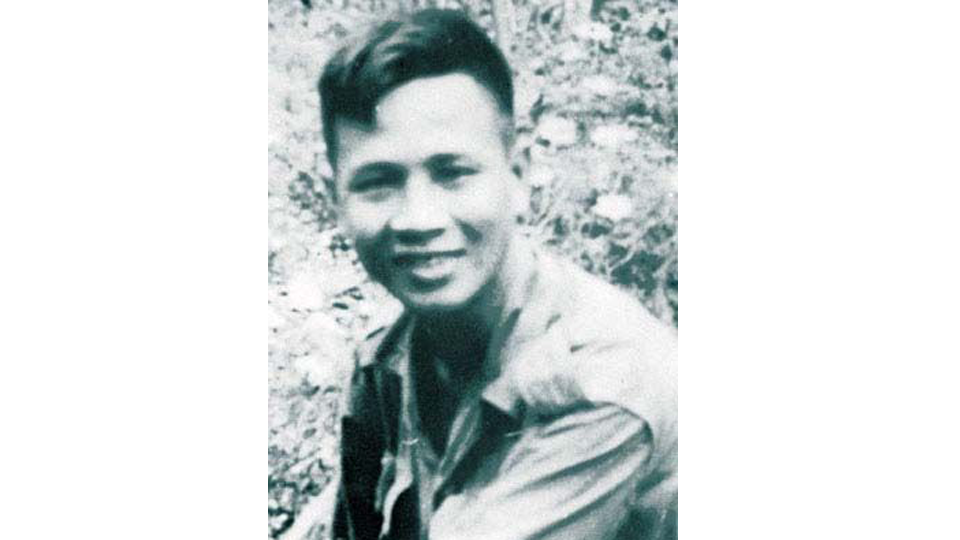 |
Writer Nguyen Thi (also known by the pen name Nguyen Ngoc Tan) whose real name is Nguyen Hoang Ca, was born on May 16, 1928, in Quan Phuong Thuong village (now Hai Anh commune, Hai Hau district) - a land famous for its tradition of mandarin examinations and literature. His father was a Confucian scholar, living by teaching in the village. His mother was a worker at the Nam Dinh Textile Factory, which was also the base of the Factory Party cell. At the age of two, Nguyen Thi had to follow his mother to prison because the revolutionary base was terrorized after the Nghe Tinh Soviet movement. At the age of 15, he went to Saigon to earn a living and self-study. The August Revolution succeeded, then the nationwide resistance broke out, he enthusiastically joined the Thoi Tu commune guerrilla team (Hoc Mon), and the first suicide unit of Saigon (Nguyen Binh platoon). Because of his artistic qualities, he was assigned to do propaganda work and was the leader of the cultural team. He enthusiastically wrote, painted, composed songs, choreographed dances... for performing arts serving military units.
Nguyen Thi is known as a writer, but he started his literary career by writing poetry. That was the period from 1946 to 1953, he composed over a hundred poems and most of them were widely popular among the masses. Later, Nguyen Thi collected those poems into two volumes, the most notable of which was the first volume, Huong Dong Noi (1950). He recorded what he heard and saw with realistic verses. This is the poem Cho, which lists the products of a guerrilla area, which had just entered the war period and was not yet in shortage:
“Here gourds and squashes are green and plump white/ There baskets of purple eggplants reflect each other’s shadows/ A basket of yellow and red sweet potatoes is bustling with color/ The green mustard plant shows off its white beard/ The fish are struggling, their fins are all jagged/ The dried shrimps lie docile and quiet/ Tied by their legs, the hen stands still/ In a small cage, the chicks speak/ The grapefruits huddle together and talk/ Hanging on the branches of the banana bunches, wanting to kiss each other…”.
And here are some verses that depict the scene in a unit after a victory with the awkwardness and adorable clumsiness of a soldier in the early days of the resistance war:
“For four years he carried a long gun/ He tried his best but was still out of breath and glaring/ The guerrilla was so happy that he jumped up and down/ The long belt of ammunition he had taken swept behind his legs…”.
(Leveling the occupied area)
After the Geneva Agreement in 1954, Nguyen Thi gathered in the North and worked at the Army Literature Magazine. This was the period when he completely switched to writing prose under the pen name Nguyen Ngoc Tan, publishing a number of short stories that received public attention such as Im Lang, Doi Ban, Trang Sang ... Still with the authenticity and subtlety in observation, description and humorous tone like the poems written during the resistance war in the South, Nguyen Thi gradually won the hearts of readers nationwide. However, the desire to directly hold a gun to fight and the longing for his wife and children (the writer had a daughter in Saigon, but when he went to the North, his wife was pregnant) always urged him to return to the South. And so in 1962, he returned to the South. This was the first "going to B" period of military writers. Although he was in charge of the Magazine's Editor-in-Chief, he often went to the units to fight and live with the soldiers. That is why Nguyen Thi's writings are always full of the breath of fighting life and closely follow the war situation.
Through the first Congress of Heroes of the Liberation Armed Forces of the South (1965), Nguyen Thi made an important mark in his literary career with the memoir The Mother with a Gun written about the guerrilla heroine Nguyen Thi Ut (Ut Tich) in Tra Vinh . Immediately after that, the work was awarded the Nguyen Dinh Chieu Literature and Arts Award (Award of the Central Committee of the National Liberation Front of South Vietnam). In this memoir, Nguyen Thi succeeded in portraying the portrait of a Southern woman " Heroic, indomitable, loyal, and courageous " with the famous saying " Even the hem of the pants is still fighting ", ... In addition to the above memoir, his name is also associated with other typical works such as: The homeland canal (essay), Tales of the steel land (biography), Mother away from home, Children in the family, Stories of my neighborhood (short story) ...
It can be said that Nguyen Thi worked tirelessly and fought until his last breath. When the Mau Than 1968 general offensive and uprising took place vigorously across the battlefields of the South, Nguyen Thi was writing the novel In Trung Nghia Commune and the memoir Uoc Mo Cua Dat (written about the heroine Nguyen Thi Hanh in Long An ). Although assigned to stay behind to protect the barracks, Nguyen Thi insisted on following the fighting units deep into the inner city of Saigon.
In May 1968, Nguyen Thi brought along the manuscript of two unfinished works, participating in the battle in the formation of Group 10 to attack the southwest of Saigon. Writer Nguyen Thi's unit fought for five days and five nights on Minh Phung road. By the night of May 9, his unit suffered heavy losses, with only ten gunmen left and no time to retreat. On the morning of May 10, our counter-attack took place against a much stronger enemy force. Ten gunmen fought tenaciously, only a few comrades escaped the encirclement. Nguyen Thi was hit by a piece of shrapnel, his lung wound was so severe that he died soon after. The writer fell not far from where his daughter, Trang Thu (his daughter with his first wife - musician Binh Trang) was longing every day to see her father's face! His burning wish to see his daughter's face would never come true!...
To recognize the contributions of Writer - Martyr Nguyen Thi to the country's literature, on September 1, 2000, the President signed a decision to posthumously award the Ho Chi Minh Prize (for literature and art) to him for his works about the beloved South: Mother holding a gun, Bright Moon, Couple of friends, In Trung Nghia commune . On November 15, 2011, the President signed a decision to posthumously award him the title of Hero of the People's Armed Forces. His name (pen name Nguyen Thi) was given to many streets in many localities: Ho Chi Minh City (the street where he fell), Da Nang, Quy Nhon, Lao Cai, Nam Dinh... Writer Nguyen Thi heroically fell as a Liberation Army soldier fifty-five years ago when he was forty years old, when his talent was at its peak./.
Cultural discussion
Source link


![[Photo] Hue: Inside the kitchen that donates thousands of meals a day to people in flooded areas](https://vphoto.vietnam.vn/thumb/1200x675/vietnam/resource/IMAGE/2025/10/29/1761738508516_bepcomhue-jpg.webp)
![[Photo] Prime Minister Pham Minh Chinh chaired a meeting to discuss solutions to overcome the consequences of floods in the central provinces.](https://vphoto.vietnam.vn/thumb/1200x675/vietnam/resource/IMAGE/2025/10/29/1761716305524_dsc-7735-jpg.webp)

![[Photo] Prime Minister Pham Minh Chinh chaired a meeting to evaluate the operation of the two-level local government model.](https://vphoto.vietnam.vn/thumb/1200x675/vietnam/resource/IMAGE/2025/10/29/1761751710674_dsc-7999-jpg.webp)

![[Photo] Human love in the flood in Hue](https://vphoto.vietnam.vn/thumb/1200x675/vietnam/resource/IMAGE/2025/10/29/1761740905727_4125427122470875256-2-jpg.webp)
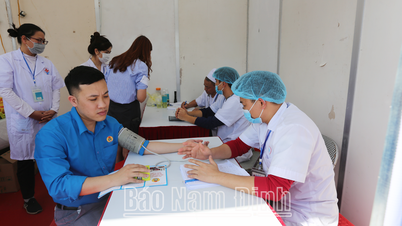
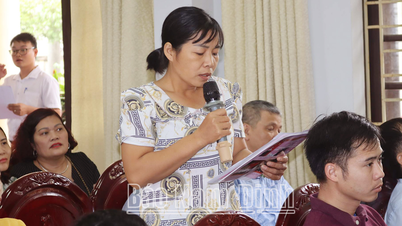


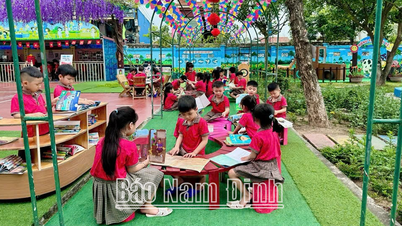





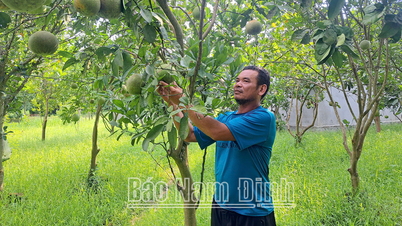
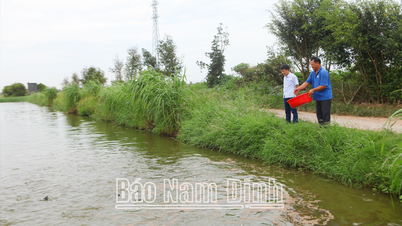
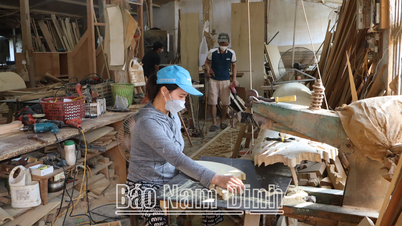
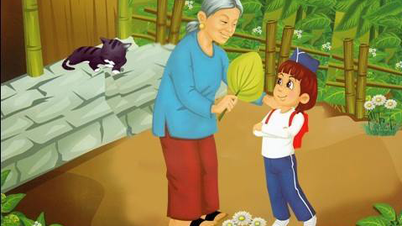

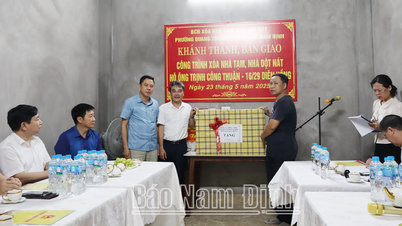






































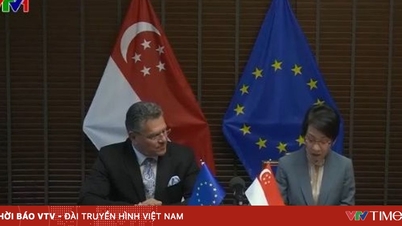
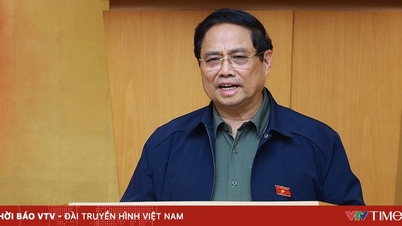


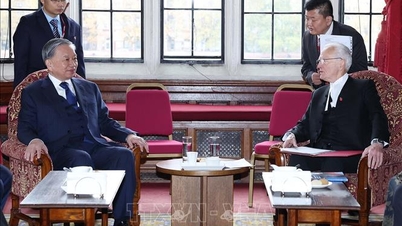




![[Live] Concert Ha Long 2025: "Heritage Spirit - Brightening the Future"](https://vphoto.vietnam.vn/thumb/402x226/vietnam/resource/IMAGE/2025/10/29/1761743605124_g-anh-sang-am-thanh-hoanh-trang-cua-chuong-trinh-mang-den-trai-nghiem-dang-nho-cho-du-khach-22450328-17617424836781829598445-93-0-733-1024-crop-1761742492749383512980.jpeg)



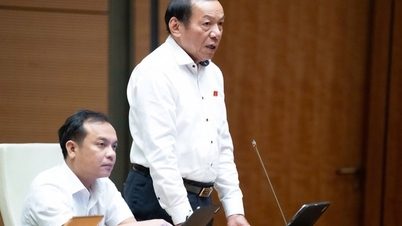
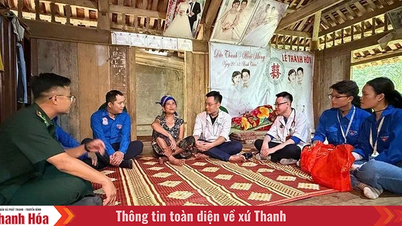

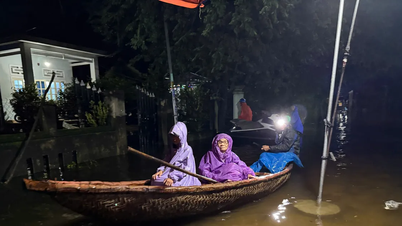





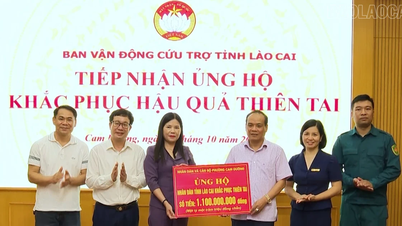

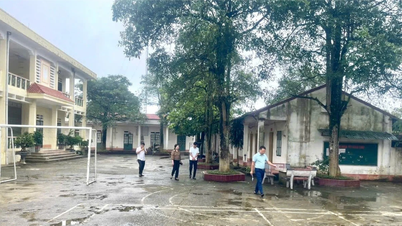















Comment (0)